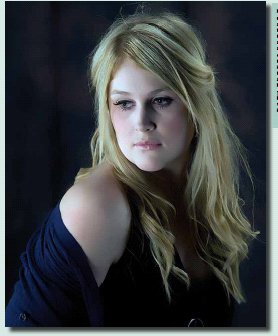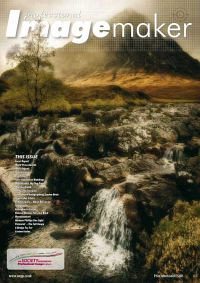articles/Lighting/filllight-page1
What, No Fill Light? - part 1 of 1 2 3 4 5 6
Published 01/04/2010

Image No. 1, has my blond model in the lighting set shown in the diagram. The form light has sculptured her face to perfection and the two additional lights, one above and behind her head, and one at 90 degrees from the first element in the form light, illuminates her hair. The ratio from highlight to shadow is something of a hybrid in that her features are defined at 4:1, yet the shadow on the left of her face is at 3:1, all rendered without a fill light. The effect is quite sensual.
Almost without fail portraits are created using a fill light.
Experience suggests that a fill light is needed to reduce the ratio from highlight to shadow or to open up areas within the image that may otherwise lack detail, such as in the shadows where detail needs to be shown. This applies to both studio portraiture and those created on location. In the latter we either use the ambient light as the fill or we will employ a reflector or flash to open up the shadows.

Image No. 2, now has her hair up and the light behind her has produced a dramatic example of how a four-light set, without a fill light, can create a different dynamic. A greater feeling of depth has been created by modeling her face in an almost 4:1 ratio and at the same time illuminating the back of her neck and shoulders with light number 4, as indicated in the diagram. Here again there is a greater impression of sensuality as the light surrounds her with a gentle rim of light.
But that experience can mislead us into believing there are no alternative lighting techniques. The overwhelming majority of portrait photographers are people of habit and need pushing to consider alternatives to the conventional lighting technique.
In other words, 'if it works why change it?' or, 'I have been using it for ages and my clients are happy'.
You are currently on page 1
- What, No Fill Light? page 1
- What, No Fill Light? page 2
- What, No Fill Light? page 3
- What, No Fill Light? page 4
- What, No Fill Light? page 5
- What, No Fill Light? page 6
1st Published 01/04/2010
last update 09/12/2022 14:54:13
More Lighting Articles
There are 0 days to get ready for The Society of Photographers Convention and Trade Show at The Novotel London West, Hammersmith ...
which starts on Wednesday 14th January 2026





